Main content
Ocean: What to expect
home to 80% of all animal life on Planet Earth
Much of our planet remains unexplored, for most of it is covered by water. Every journey below the surface can reveal something extraordinary - more than a thousand new species are discovered here every year. The ocean is home to 80% of all animal life on Planet Earth, but today, thriving in this vast and varied world often demands the most surprising adaptations…
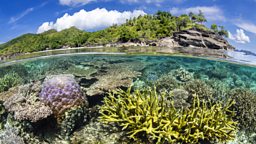
The shallow waters of the tropics provide the perfect conditions for coral reefs – the most diverse habitat on the planet. They may look like a paradise, but they are a battlefield – where not everything is as it seems.
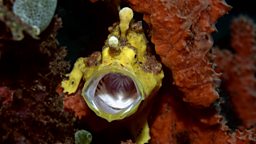
A clown frogfish – the most extraordinary fish on the reef. Its fins have effectively become feet, allowing this fish to walk across the reef and on its head it carries a fishing rod baited with a shrimp-like lure, that can prove fatally seductive.
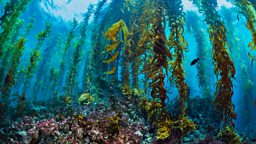
In the cold shallow seas off north America, summer sunshine fuels one of the fastest growing organisms on the planet – giant kelp. These towering fronds create an undersea forest – home to many species of shark.
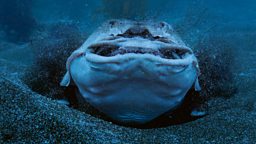
An angel shark erupts from the forest floor – devouring its victim whole in a tenth of a second – faster than the blink of a human eye.
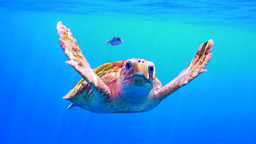
Away from the shallows, out into the open ocean there is no shelter and very little food. This loggerhead turtle cruises the big blue and picks up a very unusual hitchhiker
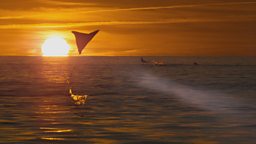
Finding a partner in the vastness of the ocean is not easy. Dawn in the Sea of Cortez and mobula rays gather to breed. No one knows for sure why they perform such impressive aerial acrobatics, but it is thought that the splashes attract more rays to the group.
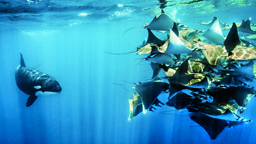
The splashes also attract orca. This is a family of ray hunting specialists, who eat little else. They have learnt how to hunt the fast and agile rays.
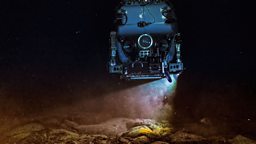
Vast areas of our ocean are yet to be explored and the least known parts of it are its great depths. To venture and film there required specialised submersibles.
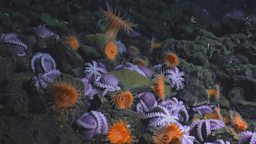
Two miles down at the bottom of the ocean, the temperature is freezing cold and pressure is crushing, yet there is still life. Scientists recently discovered the largest known gathering of octopus in the world here - 20,000 pearl octopus mothers huddle together in a deep-sea thermal spa. The warm waters help their eggs to develop.
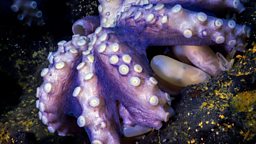
It will take two years for her eggs to develop and in that time she will not leave her brood for a moment – not even to feed!
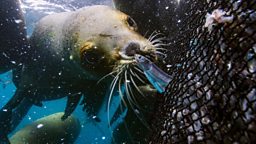
The oceans are changing and life there is having to adapt fast. Off the coast of South America, clever sea lions have learnt their way to an easy meal in fishermen’s nets – but it is a risky strategy.
Planet Earth III continues with Ocean on Sunday 29th October at 6:20pm on ±«Óãtv One and iPlayer
